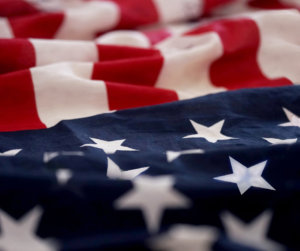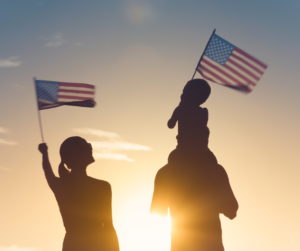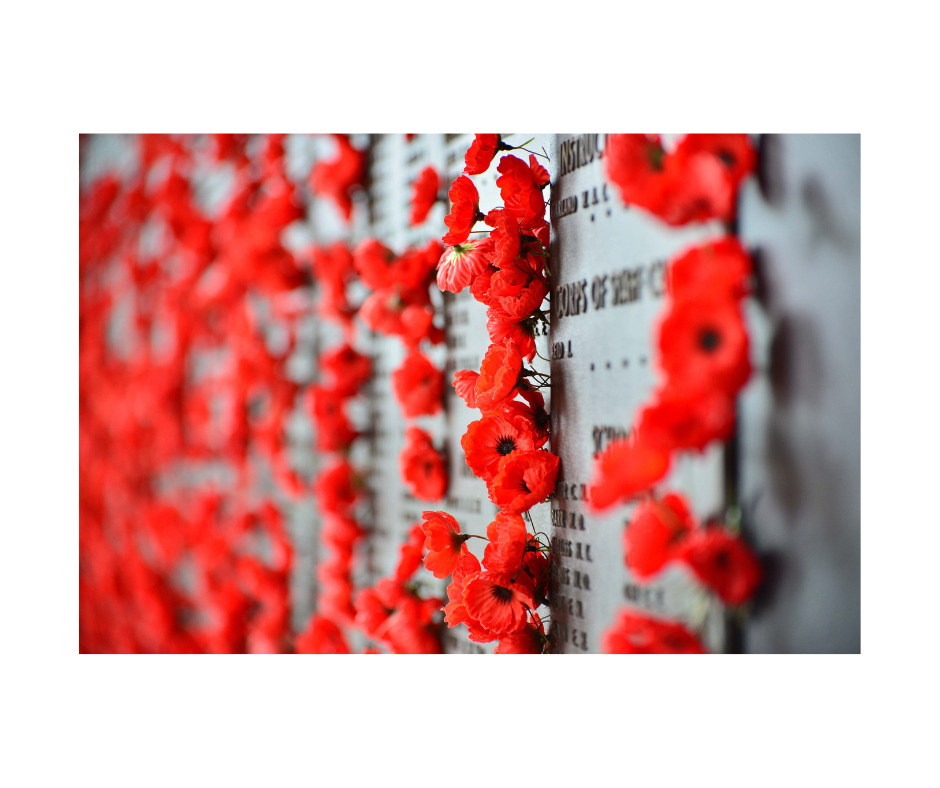Silent Suffering
Many veterans, young and old, experience mental health issues but don’t reach out for help
Veterans of all ages are at risk for mental health and substance use issues. The most common concerns are: depression, substance use, isolation (especially with older veterans), post traumatic stress disorder (PTSD), traumatic brain injury (TBI), and suicide. Oftentimes they struggle with issues in silence, although veterans are at risk for the same mental health challenges as the civilian population. Molly Brooks, CEO and founder of Hero’s Bridge, a nonprofit organization that assists older Veterans, sat down with Mental Health Association of Fauquier County (MHAFC) to discuss veterans.

“Problems arise in how veterans were trained. They were indoctrinated to not ask for help. They were told not to show weakness. They don’t like to ask for help, but for many we serve there are mental health concerns,” Brooks explained. She noted that it is important that others look for signs and symptoms of mental health concerns so that veterans can receive the help that they need.
For some individuals, isolation negatively impacts their mental wellness, for others it is a combination of issues such as PTSD, depression, and other conditions. MHAFC is a nonprofit organization that helps promote and facilitate mental wellness in Fauquier and Rappahannock counties. MHAFC does this through its C.A.R.E. efforts, which stands for: convene community organization and leaders; advocate for access to mental health services in the community; refer community members and partners to resources and support programs; and educate community partners, stakeholders, and individuals on Mental Health First Aid and other services.
“The stigma around mental health is slowly receding, but we still see it as a concern in the veteran population,” Renee Norden, Executive Director for Mental Health Association said. “Connection is the single most effective protective factor for our mental wellbeing. If you see a veteran in need of help, reach out and connect. Please utilize the resources to find the appropriate help they need, or contact us so we can help you find a provider or service that can help. Our website offers a free, anonymous signs and symptoms screening tool and a searchable provider database, which also includes providers that will help those without insurance.”
“Any vet from any age group can call us and discuss needs on a case-by-case basis,” Brooks elaborated. “If the callers are in the population we serve, we can send them a Battle Buddy –a younger veteran paired with an older veteran – to serve them and we will bring them into the fold.”
“If a younger Veteran contacts us, we will conduct an initial consultation to hear what’s going on with them, and then we will connect them to the resources to help them,” Brooks shared.
Tips to Help Veterans
Brooks shared some tips that may be helpful if you know of a Veteran or Veterans that may be coping with mental health issues:

Stop Isolation.
Try to prevent them from isolating themselves. According to Brooks, this is the number one thing Veterans will do when they are struggling.
Visit Veterans.
Take them something – it could be a baked item, a favorite book, groceries.
Contact Hero’s Bridge.
If you are very worried about a specific veteran, call Hero’s Bridge, no names are required and they can help guide you to the appropriate resource(s).
Brooks suggested that people interested in helping should watch the VA S.A.F.E. video on YouTube. This video was created by PsychArmor, and is part of the required training Hero’s Bridge volunteer orientation. “The video is well done by a clinician and deals with the suicide issue,” she detailed and said that PsychArmor is a valuable resource on mental health and Veterans.
During the fiscal years 2006-2019, the Government Accountability Office (GAO) noted a 90% increase in the total number of veterans receiving mental health services. The GAO also noted that the “VA projects a 32% increase in outpatient mental health care over 10 years.”
For veterans in need of assistance, there are some local and national resources available. There are also ways for Veterans to connect with others in the community, which in turn may have a positive impact on their wellbeing. Remember that veterans are 1.5 times more likely to die by suicide, so it is important for individuals with concerns, to reach out and find the support they need.
Resources
Suicide and Crisis Lifeline
988 Call or text
Regional Crisis Line
434-230-9704
Mental Health Warm Line | VirginiaNavigator
(866) 400-6428
Mental Health Association
Mental Health Symptoms and Screening Tool
The S.E.E. Center
540-825-3366
SEERecovery@rrcsb.org
rrcsb.org
Hero’s Bridge
540-341-5378
Herosbridge.org
info@herosbridge.org
Robert E. Laing Memorial VFW Post 9835
vfwpost9835.org
Cdrpost9835@vfwva.org
Remington American Legion Harold J. Davis Post 247
540-316-0476
vso@alpost247.org
Disabled American Veterans Chapter 7
571-435-1680
Dav.org
davchapter7va@gmail.com
Virginia Department of Veterans Services
703-479-7434
Dvs.virginia.gov
VA Mental Health Services
U.S. Department of Veterans Affairs
National Alliance Mental Illness (NAMI)
Veterans & Active Duty Mental Health Concerns, NAMI
NAMI Homefront Mental Health Resources (Free mental health wellness tips and advice)
Give an Hour
Military and veteran programs
Important Phone Numbers
There are more important phone numbers available in the latest digital edition of the Fauquier County Resource Guide.
Civilian Health and Medical Program
800-733-8387
Health Care
877-222-8387
Homeless Veterans
877-222-8387
Special Health Issues
800-749-8387
Veterans Administration (VA) Benefits
800-827-1000
Women Veterans
202-461-1070
Department of Defense Helpline – Military OneSource
711 or 800-342-9647
Veteran Health Care – Tricare, Defense Health Agency
(877) 874-2273 North Region
(800) 403-3950 South Region
(888) 874-9378 West Region
(888) 363-2273 Main TRICARE Information Service number

